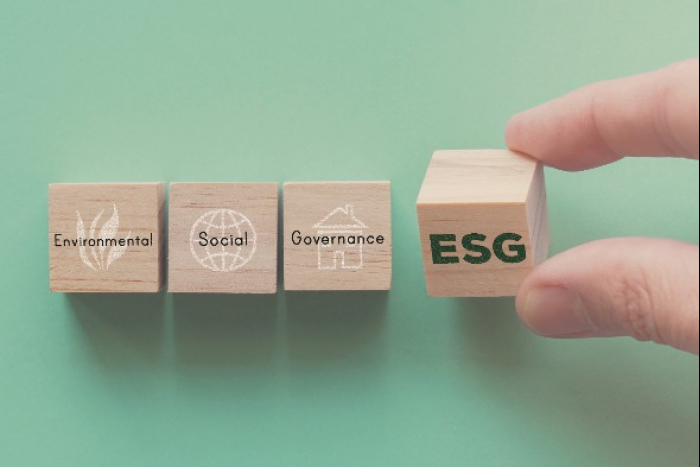ESG
Korean firms with high ESG scores show great P/E ratios
Companies with a grade B or above in ESG evaluation posted a 10.4% higher P/E ratio on average
By Jul 05, 2022 (Gmt+09:00)
1
Min read
Most Read
LG Chem to sell water filter business to Glenwood PE for $692 million


Kyobo Life poised to buy Japan’s SBI Group-owned savings bank


KT&G eyes overseas M&A after rejecting activist fund's offer


StockX in merger talks with Naver’s online reseller Kream


Mirae Asset to be named Korea Post’s core real estate fund operator



South Korean corporates’ price-earnings ratios are affected by their environmental, social and governance (ESG) management, experts said at an ESG conference held by Korea Capital Market Institute in Seoul last week. Among the ESG criteria, environmental factors were found the most influential to the firms’ P/E ratio.
A research team from Korea University conducted a study on 683 Korean non-financial firms’ stock price trends during early 2020 and their ESG performance as assessed by Korea Corporate Governance Service (KGCS). In early 2020, Korean stocks nosedived and bounced back amid a widespread outbreak of COVID-19.
The firms which achieved grade B or above in ESG evaluation achieved an average P/E ratio that was 10.41% higher than the other firms', the research team found. Environmental factors especially made a positive impact on the P/E ratios, and corporates with strong ESG management showed better downside protection, said Korea University’s Business School professor Na Hyun-seung who led the research.
Firms’ carbon footprint will heavily impact their expected rate of return, said Kim Woo-chan, professor at Korea University’s Business School, in the forum. Corporates with heavy emissions have risks concerning the carbon tax and related regulations, and are thus expected to see 5-7% of losses from their stock prices, Kim added.
Kim said ESG engagement, which is to execute active ownership in the investee companies for ESG improvement, will lead to excess returns as well as enhance ESG performance. Firms could strengthen their ESG engagement and shareholder activities by introducing non-binding voting systems for shareholder proposals, he explained.
The National Pension Service (NPS) of Korea is seeing some positive impact on ESG investment, Korea Capital Market Institute researcher Nam Chae-woo said. The world’s third-largest pension fund achieved a 9.6% excess return from its responsible investment fund in 2020, compared with the benchmark Kospi index in the same year, Nam added.
Write to Sang-Hoon Sung at uphoon@hankyung.com
Jihyun Kim edited this article.
More to Read
-
 ESGLS Cable to step up ESG efforts by recycling wooden cable drums
ESGLS Cable to step up ESG efforts by recycling wooden cable drumsJul 04, 2022 (Gmt+09:00)
1 Min read -
 ESGKorean companies rapidly embrace ESG in management standards
ESGKorean companies rapidly embrace ESG in management standardsMay 23, 2022 (Gmt+09:00)
2 Min read -

-
 Korean startupsStartups need to embrace ESG, industry insiders say
Korean startupsStartups need to embrace ESG, industry insiders sayApr 06, 2022 (Gmt+09:00)
3 Min read -
 EnergyESG fever puts Korean oil refiners in quandary over facility upgrades
EnergyESG fever puts Korean oil refiners in quandary over facility upgradesJan 16, 2022 (Gmt+09:00)
3 Min read
Comment 0
LOG IN


